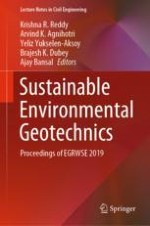2020 | OriginalPaper | Buchkapitel
Estimating Municipal Solid Waste Generation: From Traditional Methods to Artificial Neural Networks
verfasst von : Katerina Donevska
Erschienen in: Sustainable Environmental Geotechnics
Aktivieren Sie unsere intelligente Suche, um passende Fachinhalte oder Patente zu finden.
Wählen Sie Textabschnitte aus um mit Künstlicher Intelligenz passenden Patente zu finden. powered by
Markieren Sie Textabschnitte, um KI-gestützt weitere passende Inhalte zu finden. powered by
